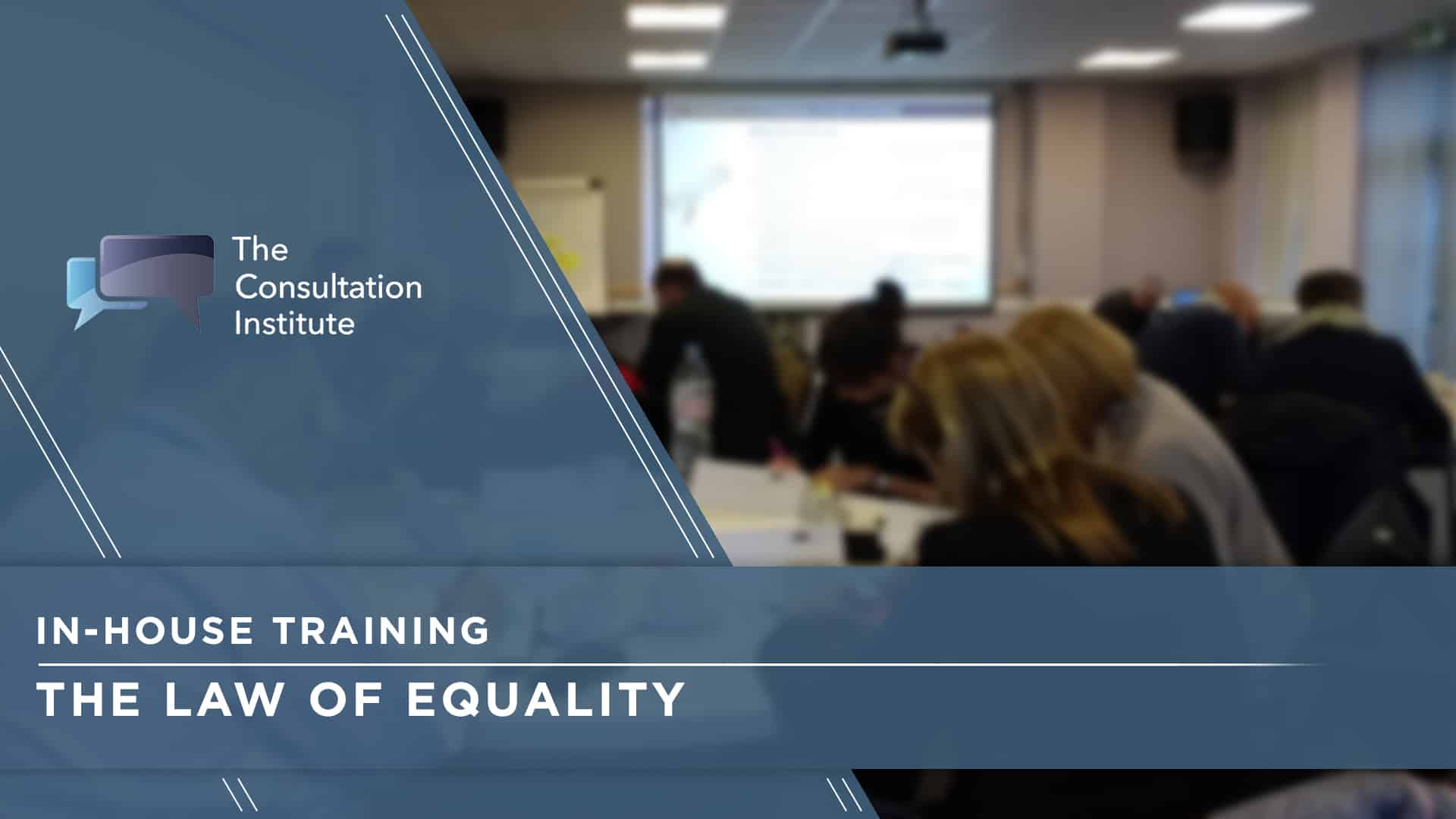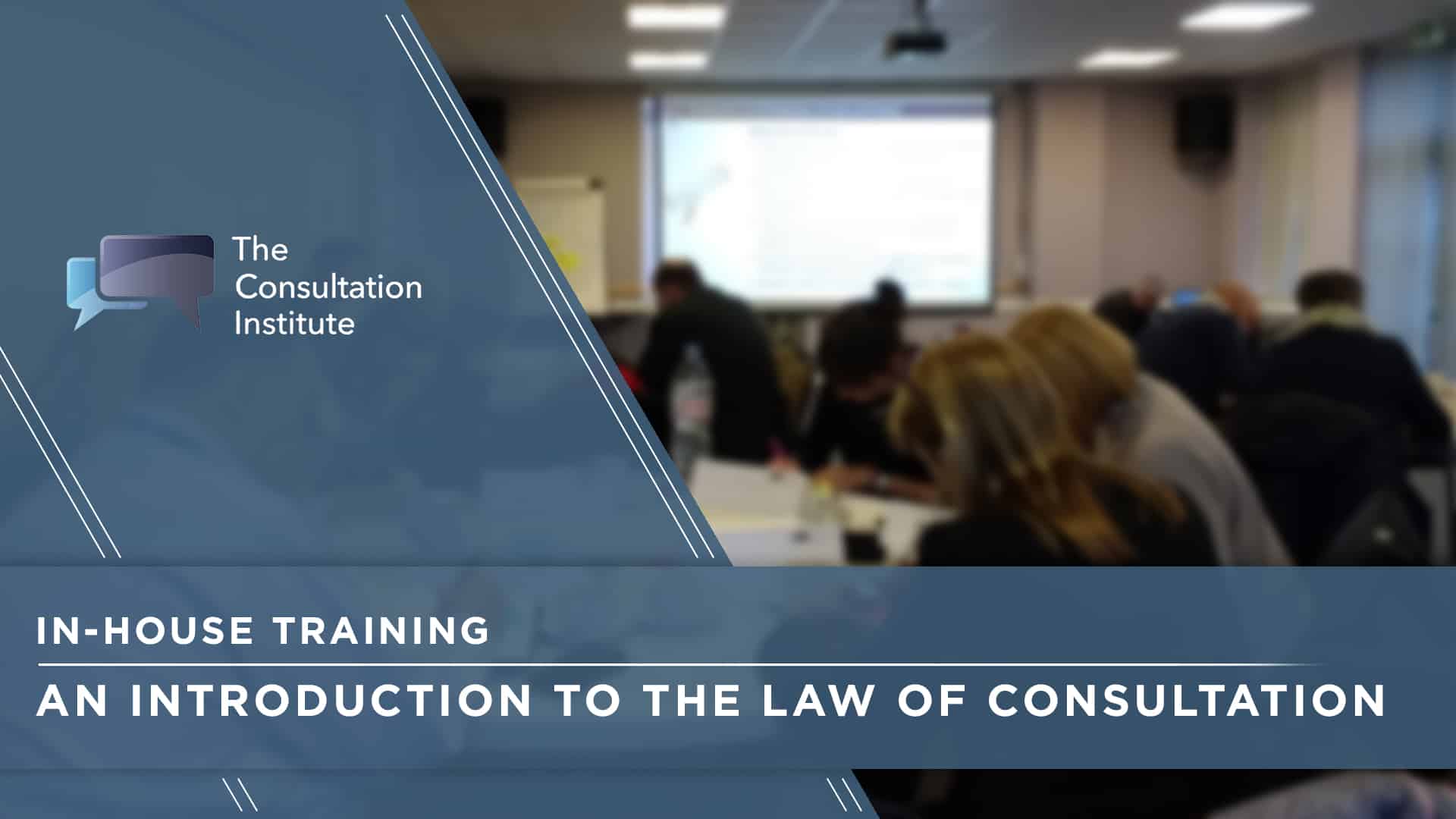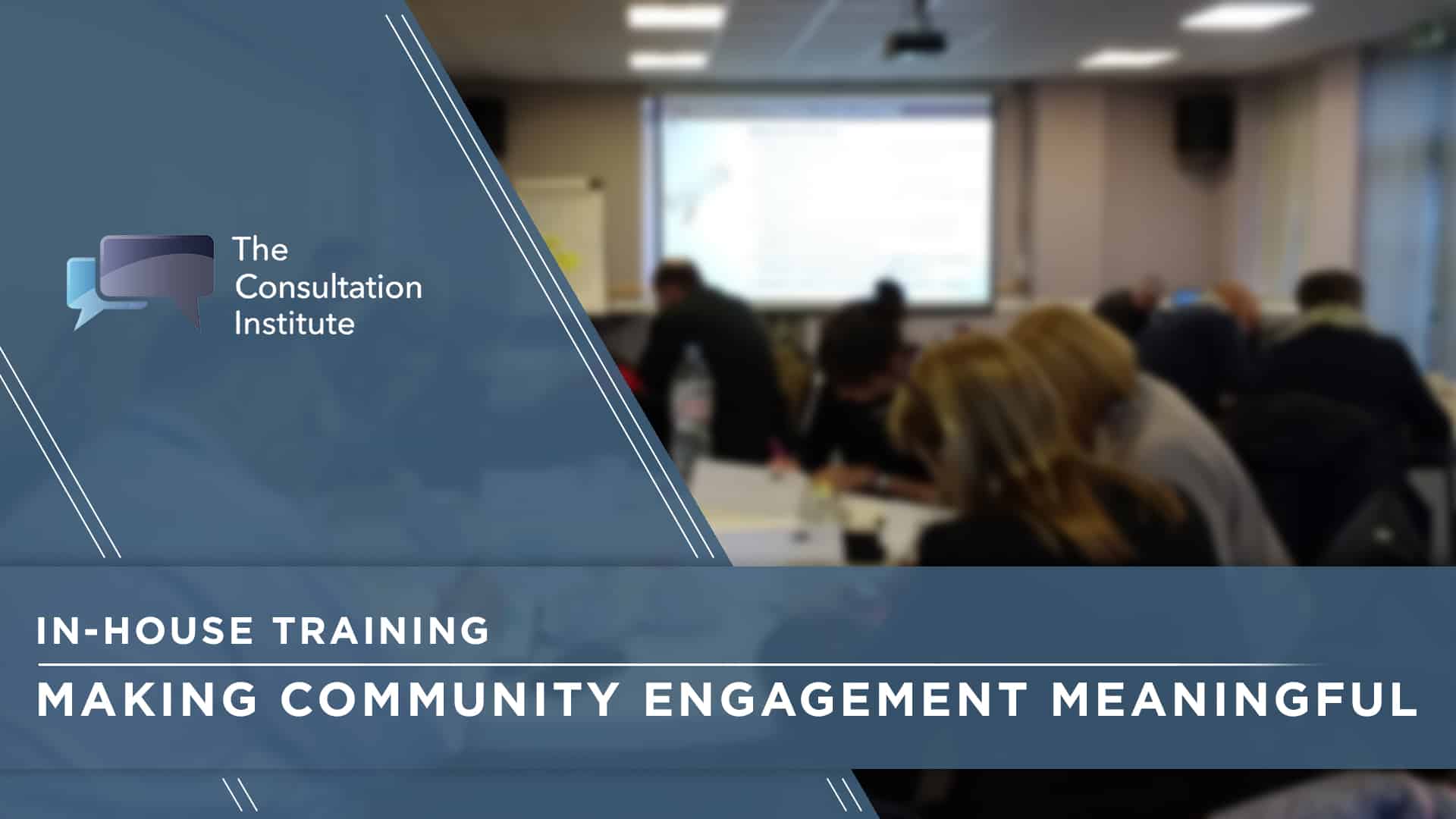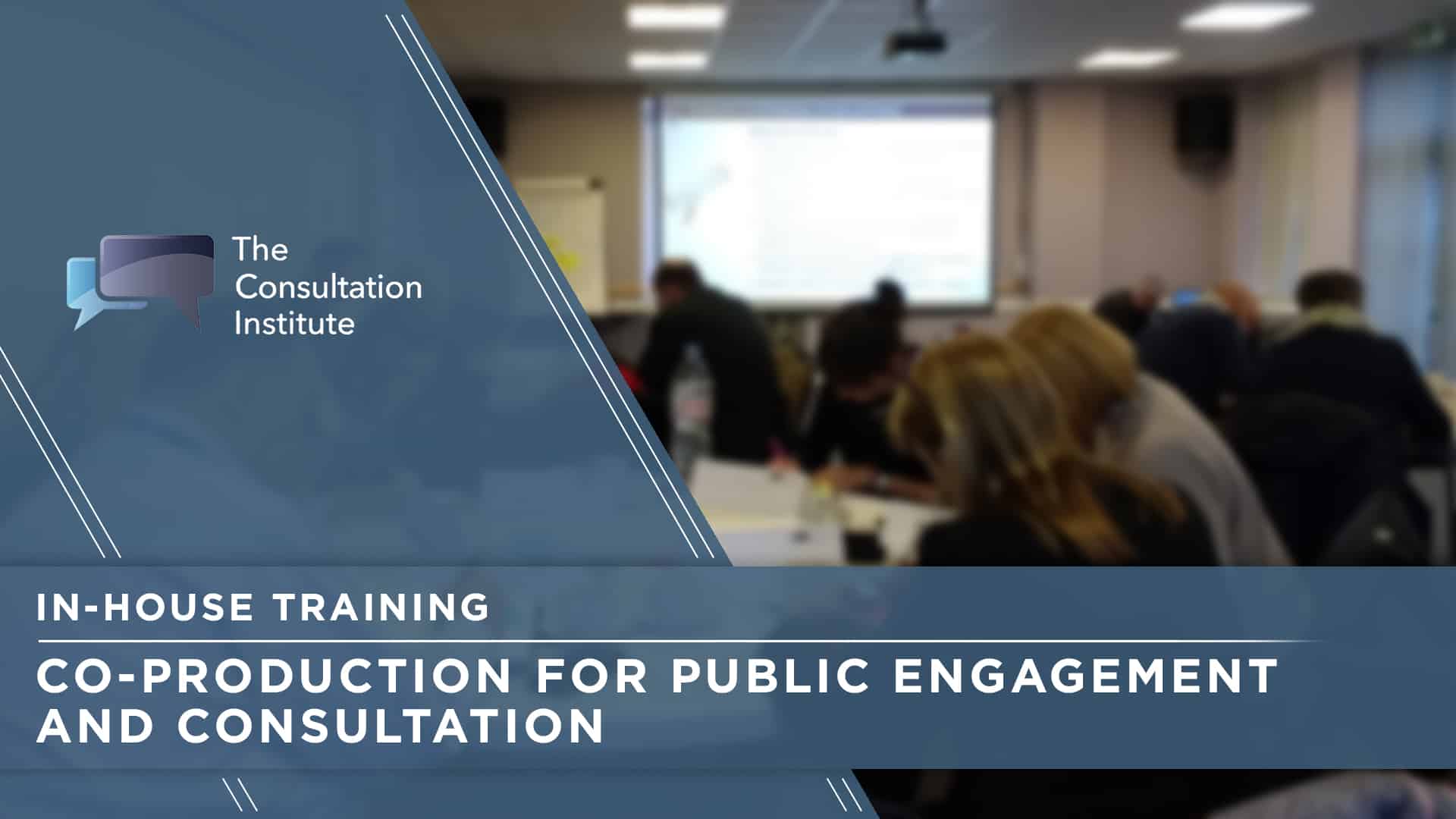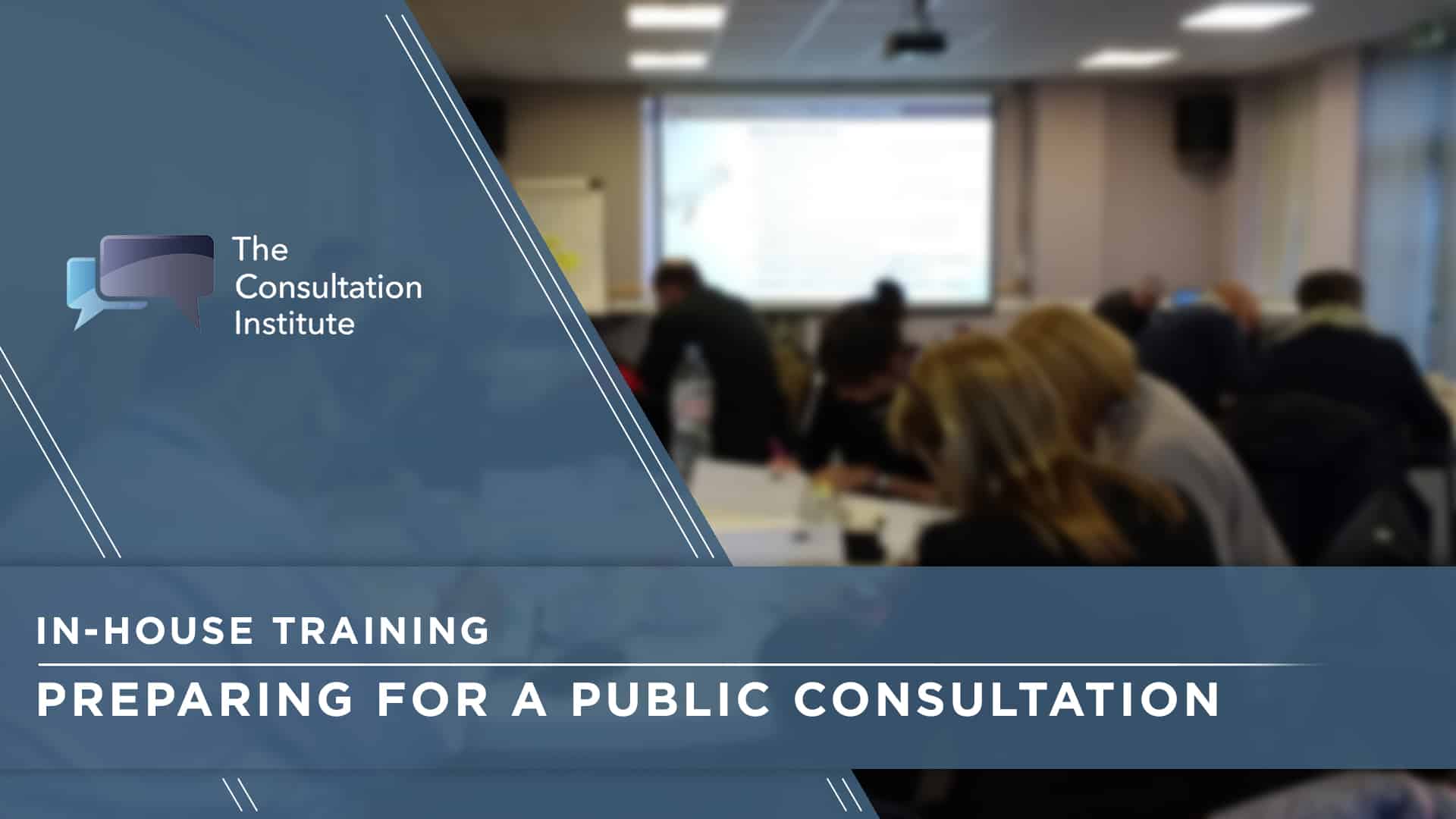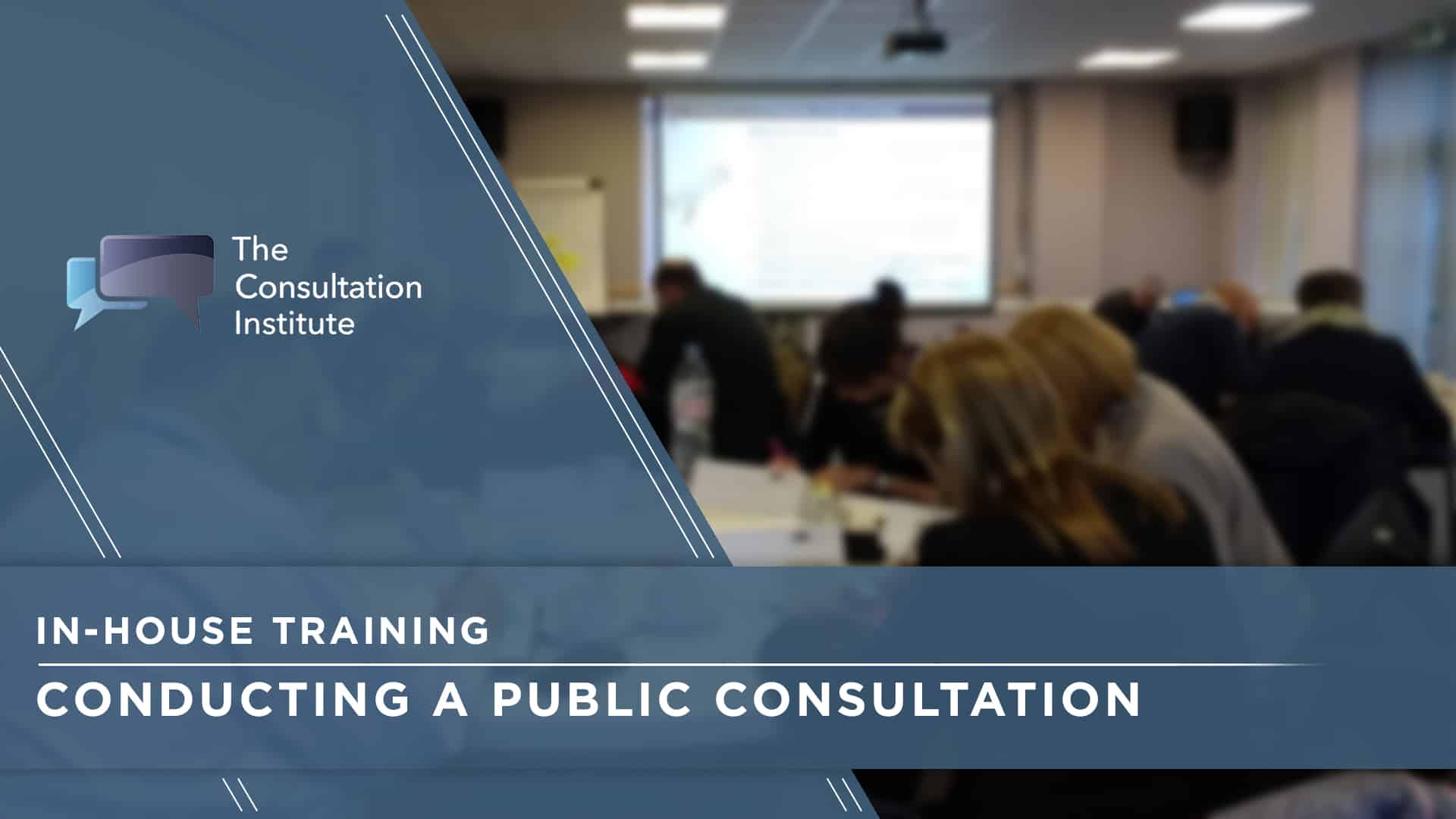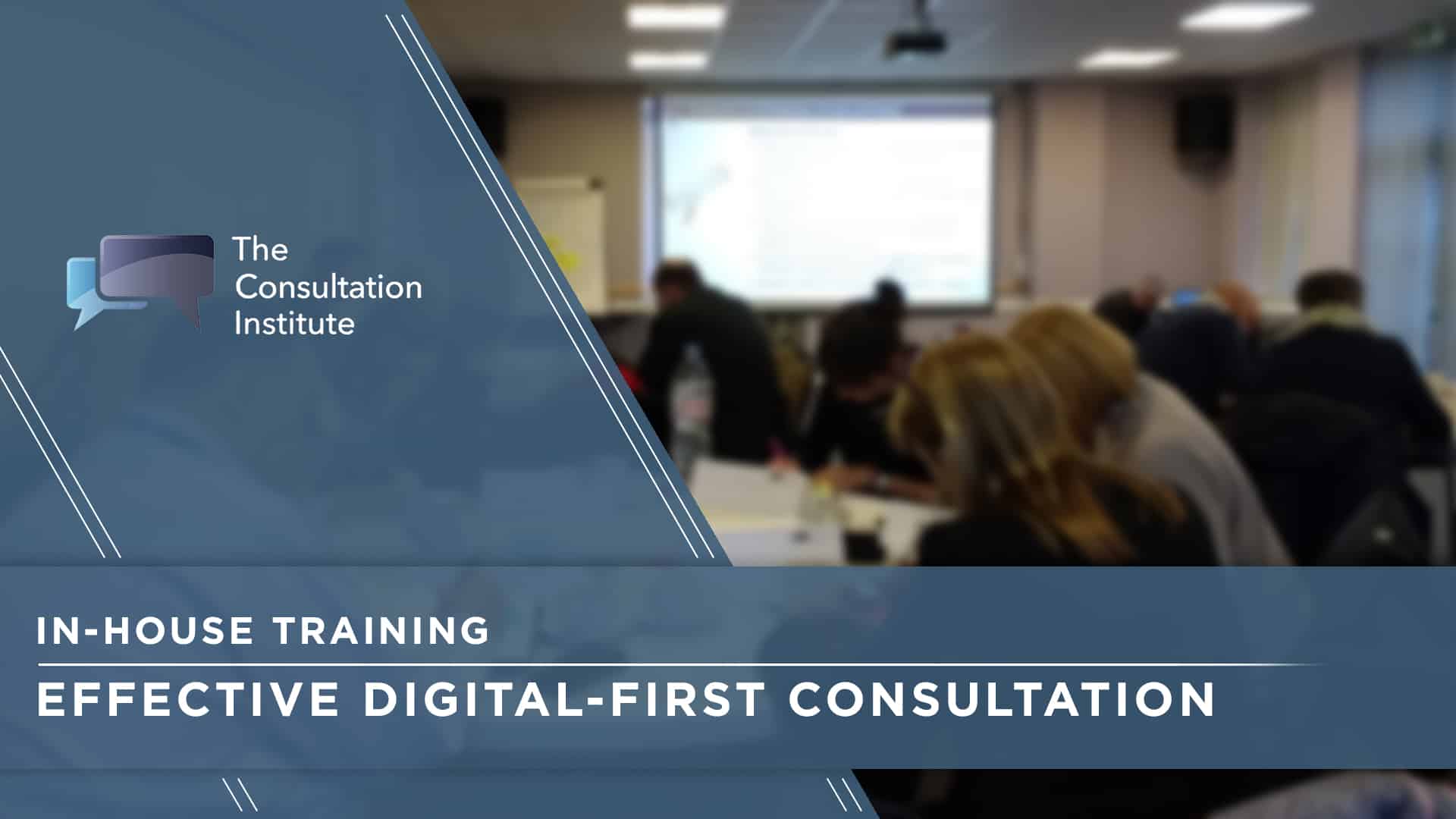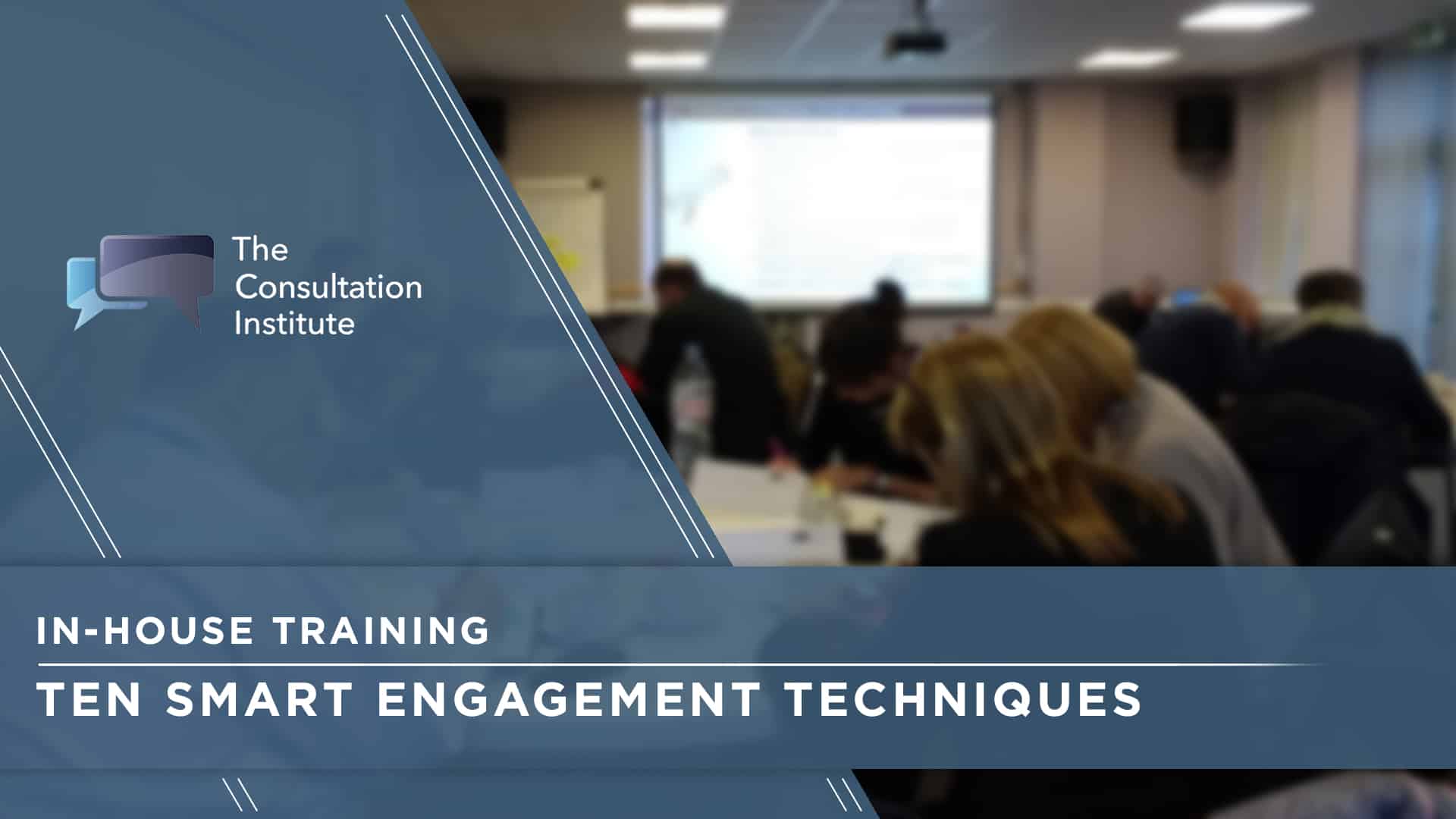In-House Training
Tailored for a direct and efficient solution.
By opting for in-house delivery, your organisation benefits from a cohesive learning experience that enhances team dynamics, improves internal processes, and establishes a uniform standard of knowledge and skills within the team. This approach is not only more cost-efficient when making training accessible to whole teams, but also ensures that the training is directly relevant by allowing for tailoring to address specific themes or issues relevant to your organisation.
Sessions vary from half-day to full-day and are structured to include interactive discussions, practical exercises, and real-world case studies, ensuring that participants leave with a robust and actionable understanding of the material. We understand that everyone has different training styles, so we offer online or in-person delivery, individual sessions or comprehensive programmes, and personalised, instructor-led sessions or blended learning with the addition of e-Learning modules.
All courses from our open-programme can be delivered in-house and can be booked through the links below. If you’re looking for something bespoke then reach out to our Account Management team who will work with you to create something truly unique.
Our tailored workshops are meticulously designed to address our clients’ specific requirements. Whether you’re seeking targeted insights on consultation law, equalities requirements, stakeholder engagement, or a broader understanding of consultation and engagement within your sector, our workshops will provide the solutions you need.
We also specialise in workshops for Resilient Leaderships Elements (RLE) including Clarity of Direction, Leadership Presence, Awareness and Resilient Decision-Making. Led by our experienced Associates and RLE Coaches, these workshops aim to inform, engage and empower your team.
Some of the common agendas we frequently deliver include the following:
Develop a Stakeholder Analysis
A 2.5-hour workshop delivered in person with the senior team and officers involved in community engagement and equalities to develop a stakeholder analysis, which will provide a greater understanding of the local community and key stakeholders and how to reach them during consultation.
The workshop will explore who your local ambassadors and partners are and where there is any risk of opponents to your proposals. We would also look at the workforce as stakeholders and how the Fire Brigade Union could be incorporated into your planning process.
Objectives of the workshop include:
- Enhanced Understanding: Participants will gain a deeper understanding of the local community dynamics and key stakeholders, fostering a more nuanced perspective on community engagement and equalities.
- Identification of Advocates and Partners: Attendees will be able to identify local ambassadors and strategic partners who can play a crucial role in advancing the objectives of the Fire and Rescue Service.
- Proactive Opposition Mitigation: By exploring potential areas of risk, participants will be better prepared to anticipate challenges and proactively address concerns, leading to smoother consultation processes.
- Inclusive Workforce Consideration: Recognition of the workforce as stakeholders will lead to a more comprehensive approach to planning,
- Collaboration with Fire Brigade Union: Participants will explore opportunities for collaboration with the Fire Brigade Union, fostering a cooperative relationship and integrating their valuable insights into the planning process.
Practical Application of the Public Sector Equality Duty
A 2.5-hour briefing on the practical application of the Public Sector Equality Duty would provide you with a way forward to ensure that you are able to demonstrate that you have discharged the duty during the consultation and that through good governance, decision makers have paid due regard to the consultation responses from your most vulnerable communities.
Attending this workshop offer the following benefits:
- Gain a deeper understanding of how to practically apply the Public Sector Equality Duty in your work.
- Contribute to good governance practices by ensuring decision-makers prioritise and consider consultation responses, particularly from vulnerable communities.
- Equip yourself to advocate for the needs and perspectives of the most vulnerable communities, promoting inclusivity in decision-making.
- Stay informed and confident in your ability to adhere to legal requirements, fostering a culture of compliance within the FRS.
The primary aim of an Executive Briefing is to offer a captivating and informative session specifically designed for the senior leadership and executive teams. The briefing overarching objective is to provide participants with a positive and professional experience, fostering engagement through information dissemination and open discussions.
These briefings typically span 1 to 2 hours for audiences of up to 20, and are conducted by a highly experienced tCI Fellow or Senior Associate. They delve into key topics through visual slides, encouraging participants to pose questions and seek additional clarification.
The flexibility of our approach allows for thematic emphasis, whether it be on consultation law, public engagement, equalities, budget consultations, or a broader exploration of consultation and engagement within a specific sector.
Decision makers highly value these sessions as a crucial foundation for establishing a safer and more smarter decision-making process.
While our briefings are easily customised to address specific themes or issues, some of the common agendas we frequently deliver include the following:
Executive Briefing 'Consultation'
The objective of the Executive Briefing is to provide an enjoyable and informative session tailored for both the senior leadership team and the executive team. The focus of this briefing is on public engagement and consultation. The main goal is to inform and engage the participants in a positive and professional manner while addressing questions and discussions. The specific objectives and topics covered in the briefing include:
Introduction:
• Check the relevance of the topic.
• Determine who has experience with public consultation.
• Discuss potential outcomes, including the possibility of a judicial review.
Defining Consultation:
• Clarify the difference between technical and everyday language in the context of consultation.
Purpose of Consultation:
• Present perspectives from both the Supreme Court and the Consultation Institute regarding the purpose of consultation.
The Phases of Consultation:
• Cover the different consultation phases in reverse order, including considering output, conducting a consultation, and preparing for consultation with transparent options development.
Reasons to Consult:
• Explain various reasons for engaging in consultation, such as statutory requirements, common law requirements, addressing options or contentious proposals, securing greater commitment, and facilitating change.
Who to Consult:
• Discuss the legal and ethical considerations for deciding who to consult, including compliance with Equality Legislation, the ‘due regard’ principle, and the Gunning principles of public law.
Best Practice Consultation:
• Introduce the concept of a Consultation Charter as a best practice approach.
Bringing it Together:
• Highlight the relationship between the change process, consultation process, and scrutiny process.
Summary and Questions:
• Summarise key points and allow participants to ask questions and seek clarification.
The main objective of this briefing is to equip the leadership teams with a comprehensive understanding of public engagement and consultation, including legal requirements, best practices, and effective approaches to the consultation process. It aims to ensure that participants leave with the knowledge and skills necessary to engage with the public in a meaningful and legally compliant manner.
Executive Briefing 'Equalities'
An informative and engaging 2-hour Equalities briefing designed specifically for the senior leadership team. This session will highlight key messages and delve into essential topics, fostering a positive and professional atmosphere for collaboration and understanding.
Highlight the Importance of Equality Considerations: Ensure the senior leadership team understands the significance of integrating equality considerations into their decision-making processes.
Emphasise the Risks of Neglecting Equalities: Communicate the potential risks and consequences of not correctly comprehending and addressing equality issues, including legal, reputational, and social risks.
Resource Allocation for Equalities: Discuss the allocation of resources for promoting and maintaining equality within the organisation, emphasising the value of investment in this area.
Role of Engagement and Consultation: Explain how effective engagement and consultation play a vital role in addressing equality issues and fostering inclusivity.
Importance of Time Allocation for Equality Consideration: Stress the significance of allowing sufficient time for a thorough evaluation of equality issues within the service change process, ensuring that equality is not an afterthought but an integral part of decision-making.
Role of Cabinet Members and Governance Team: Clarify the roles and responsibilities of Cabinet members and the governance team in championing and implementing equality initiatives and ensuring compliance.
Sharing Real-World Examples: Share practical examples of both successful and unsuccessful approaches to equality from other relevant contexts within the organisation, providing valuable insights and lessons learned.
The overarching objective of this briefing is to equip the senior leadership team with a comprehensive understanding of the importance of equality, the potential risks associated with neglecting them, and practical strategies for integrating equality into their decision-making processes. It also aims to foster a positive and professional atmosphere that encourages collaboration and a deeper understanding of the subject matter. Ultimately, this session is designed to enhance the organisation’s commitment to equality and inclusivity, leading to more informed and equitable decision-making.
Executive Briefing 'Health Inequalities'
A briefing designed to enhance your knowledge of the Duty to Reduce Health Inequalities and effectively incorporate patient engagement in a meaningful way.
Enhance Knowledge of the Duty to Reduce Health Inequalities: Ensure that participants, including senior leadership and decision-makers, have a deeper understanding of their legal and ethical duty to reduce health inequalities, particularly within the context of Section 14Z35.
Incorporate Patient Engagement Effectively: Equip participants with the knowledge and strategies to effectively incorporate patient engagement meaningfully, recognising its crucial role in addressing health inequalities.
Understanding Section 14Z35: Clarify the intricacies of Section 14Z35, demystifying its requirements and implications in practical terms.
Population Health Management and Health Inequalities: Explore the concept of population health management and its direct connection to the reduction of health inequalities.
Undertaking a Health Inequalities Impact Assessment (HIIA): Provide participants with the skills and knowledge required to conduct a Health Inequalities Impact Assessment, an essential tool in addressing health disparities.
Engage Stakeholders Meaningfully: Highlight effective methods for involving stakeholders in the decision-making process in a meaningful and impactful way, emphasising the importance of diverse perspectives.
Learn from Real-World Examples: Draw on both successful and unsuccessful practices to reinforce key themes, offering practical insights and lessons learned that can inform participants’ future actions.
This briefing aims to empower participants with the knowledge, tools, and strategies necessary to proactively address health inequalities, fulfil their legal obligations, and integrate patient engagement into their decision-making processes meaningfully. By the end of the session, participants should be well-prepared to take action in reducing health disparities and fostering more equitable healthcare outcomes.
This session will also draw on examples of good and bad practice to reinforce important themes.
Executive Briefing 'Public Engagement'
To discuss the significance of engagement, exploring the distinctions between engagement and consultation, legal obligations, and equality aspects, with a particular emphasis on your statutory duties.
Introduction and Experience Sharing
• Participants’ engagement and consultation experience
Clarifying Key Concepts
• Defining public engagement and consultation
• Purpose of engagement and consultation
Navigating the Consultation Process
• Reasons for engagement and when to consult
Best Practices and Legal Considerations
• Legal framework: statutory and common law requirements
• Equality legislation and ‘Due Regard’
• Public law (Gunning Principles)
• Consultation Charter
• Supreme Court view
• Consultation Institute view
Implementing Effective Engagement
• The triple aim
• Benefits of a partnership (asset based) approach to engagement
Integrating Engagement into Decision-Making
Considering output
Conducting a consultation
Preparing for consultation, including transparent options development
The Decision-Making Process
• What decision were made
• Vernacular vs Technical Language
Ensuring Commitment and Facilitating Change
• Where there are options or choices
• Where proposal or plans are contentious
• To secure greater commitment
• To facilitate change
The Governance and Change Process
• Change process
• Consultation process
• Scrutiny process
Bringing It All Together
• Summary and key takeaways
• Participant questions and discussion
Executive Briefing 'Budget Consultations'
Budget Consultations: Empowering Leaders to Shape Inclusive Budgets
In times of adversity, consultation and community engagement is imperative. The ability to navigate the intricate landscape of legal, financial, and ethical considerations while ensuring the voices of those most affected are heard can be a daunting challenge. Our Budget Consultation briefing is tailor-made for senior leaders who aspire to foster inclusive decision-making by leveraging the insights of their communities.
Navigate the Budget Cycle with Confidence: Gain a comprehensive understanding of the budget cycle, from inception to execution. Identify key touchpoints within the cycle where meaningful consultation and engagement can occur, ensuring a more informed and community-driven budgetary process.
Legal Compliance Made Simple: Demystify statutory requirements for budget consultations and explore the integration of the Gunning principles. Equip yourself with the knowledge to fulfil legal obligations, fostering transparency and building trust with your constituents.
Financial Challenges, Strategic Solutions: Discover engagement tools and techniques that enable financial complexities to be simplified. Learn how strategic community involvement can guide financial decisions, resulting in budgets that are not only balanced but reflective of community needs and aspirations.
Ethical Decision-Making: Uncover the intersection between budget consultation and Equality Impact Assessments (EQiA). Learn how to ethically align your decision-making processes, ensuring that budgetary decisions consider the diverse needs and perspectives of your community.
Interactive Learning: Engage in a dynamic workshop format designed to encourage participation and collaboration. Facilitators will guide you through the development of a customised roadmap for your team to integrate community perspectives into budget decisions. Identify specific actions and initiatives that align with your organisation’s goals while fostering community trust and collaboration.
Got a question about these learning solutions?
Our dedicated team is on hand to assist with any questions you might have.

